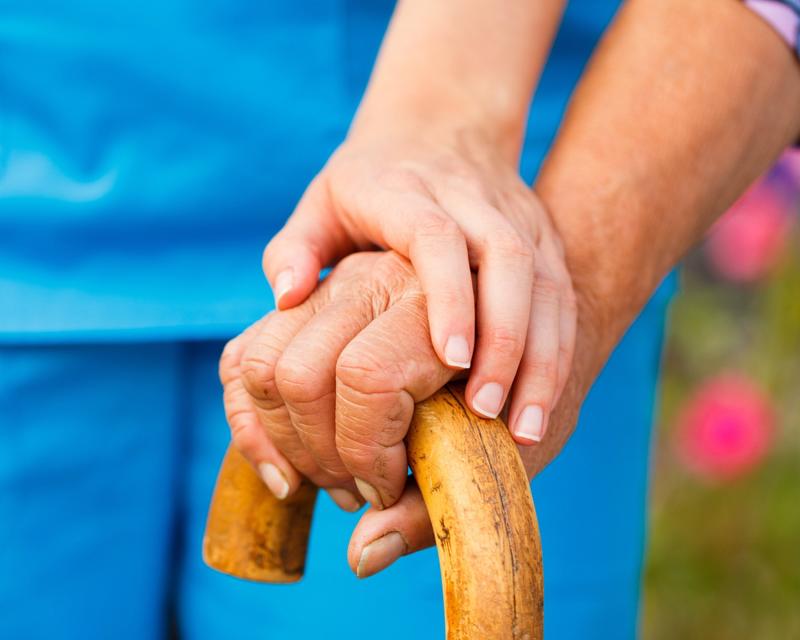
Surgery can be a serious undertaking for anyone, and making sure seniors recover after a medical procedure may be incredibly taxing for both caregiver and patient. Anesthesia is often risky in older patients, and it’s essential to provide a clean, stress-free environment for them to recover.
Find Senior Living Near Me
If you are caring for an older person who has a medical procedure scheduled, consider these tips to help them thrive during recovery:
Prepare Ahead of Time
There’s a lot to know about after-surgery care. Depending on the operation, you may have to provide your friend or family member with assistance in walking, their medication schedule, and even changing dressings on a wound. Figuring all of this out at once is not recommended. Instead, fully understand the procedure and aftercare instructions before the big day. This way, you can take helpful steps, like setting alarms to remind you to ensure the patient takes their necessary medication. Gather anything the person will need while recovering, like slippers, a good book, and easy-to-digest food, and have it on hand for their return home. Ensure everything is within reach of the bed for quick access and to ensure they don’t fall while walking across the room or house to get something. Also, keep any medicine schedule or care recovery information the doctor or hospital gives you to reference while helping your loved one.
 Devise a schedule including meals and medication times to keep your recovering loved one on track.
Devise a schedule including meals and medication times to keep your recovering loved one on track.
Coordinate with Others
It’s not often that someone can take off work to care for a senior who is having surgery. However, you can work in shifts to ensure your loved one is well cared for. Talk to other friends and family members of the person who is having the procedure and work together to devise a schedule. Collaborate on meal preparation and anything specific to the patient, such as when they must take a particular medication or when it’s necessary to attend postsurgical follow-up appointments.
“Hire a nurse or in-home healthcare provider.”
If you don’t have enough people to help, or there are gaps in the care schedule, consider hiring a nurse or in-home healthcare provider to check on the seniors as they recover. These professionals are trained in medical care and can offer skills and knowledge that you may be unable to provide yourself (like checking if a wound is healing correctly or redressing an area stitched). There are also other, more full-time options like short-term post-surgery care.
Consider Post-Surgery Care Services
Many people don’t have the time or facilities to care for a senior undergoing surgery properly. If you are uncomfortable doing so or don’t have the physical space at home, consider opting for post-surgery care services. Many assisted living communities offer short-term stay programs to help people immediately following medical procedures. You’ll know your loved one is in good care, and you can visit them whenever possible. Professional caregivers will always be on hand to change dressings, administer medications, and ensure the seniors are healing correctly.
 You’ll have peace of mind knowing professionals are taking care of your senior loved one after surgery.
You’ll have peace of mind knowing professionals are taking care of your senior loved one after surgery.
Edgewood short-term stays also offer secured doors and staff trained in memory care and Alzheimer’s assistance. All meals are home-cooked to ensure your loved one gets the nutrition they need to heal correctly. You won’t have to worry about them trying to do laundry, bathe, cook, or get dressed without assistance. Once your loved one fully recovers, they can head home. The short-term stay program is available 24 hours a day, 365 days a year, to help people who undergo planned operations and those with more of an emergency.
Be Aware of Sleep Changes
Care.com mentioned that some seniors have difficulty sleeping after undergoing surgery. These operations, although carefully planned, can still be traumatic to an older person’s body and mind, which may cause them to lose sleep. Some seniors have trouble falling asleep, while others can’t muster the energy to get out of bed. Keep an eye on your loved one’s sleeping schedule and contact their doctor if you are concerned. Some patients may benefit from sleeping pills to fight off insomnia, and others may be told to move to a chair or do some gentle movement to rouse them from post-surgery fatigue.




